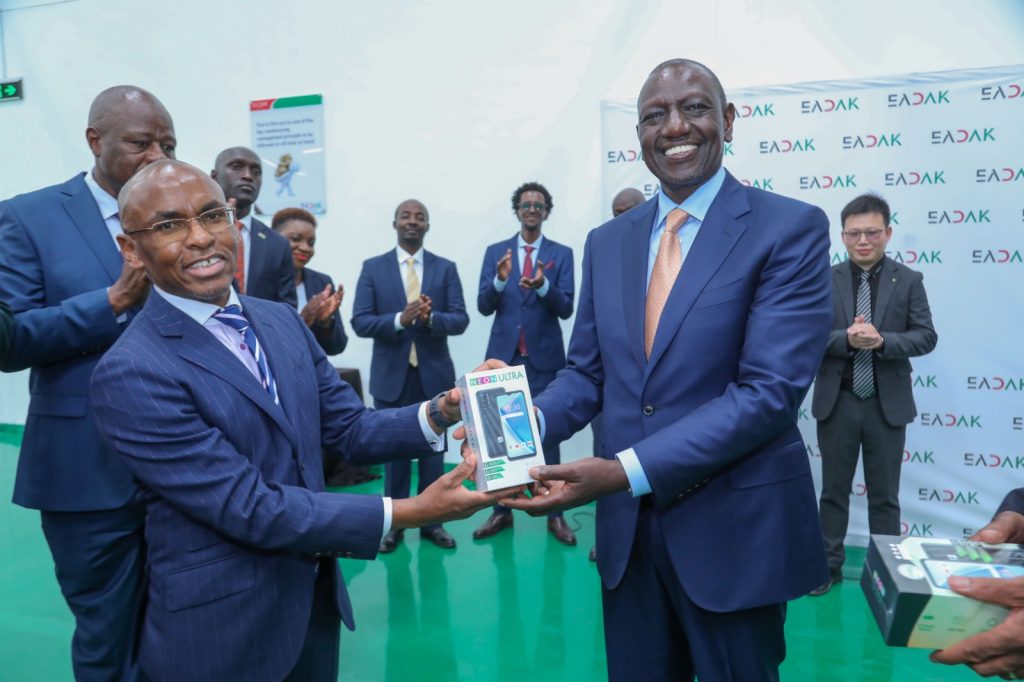Tomi Davies has been involved with ICT for over 30 years in several capacities – as enthusiast, as expert, as industry leader and recently as mentor and investor. His journey through the world of technology has taken him around the world, engaging with start-up companies, multi-national corporations, and NGOs in UK, US and Africa. He currently sits on the Boards of Sproxil, Strika Entertainment, TechnoVision Communications and PeoplePrime. Oh, and he’s also a highly sought speaker at major tech and innovation conferences across the globe.
Whew! That’s more action than some of us will see in a lifetime. TechCabal caught up with the man to gain some insight into the state of technology and angel investment in Africa as well as his recent activities.
What are you getting up to these days? ABAN seems to be your most consuming pursuit at the moment.
I retain an active role in some of my investment portfolio companies at the board level mostly in a non-executive capacity. I also teach technology in business to SME’s at the Pan Atlantic University’s Enterprise Development Centre (EDC). Occassionaly, I provide advisory services to business owners who want to exploit technology in innovative ways and take on speaking engagements.
You may not be aware that I unofficially “retire” this year having hit the magic six zero trips around the sun on this our rock we call earth. I have been using the opportunity to consolidate my hardcore commercial operations into capable hands leaving me to focus on more strategic regional and global initiatives like ABAN and GBAN.
Compared to when you first became active in the ecosystem, how would you say today’s quality of entrepreneurs, ideas and venture deal flow has changed?
Like others across the globe, the Nigerian Tech ecosystem system continues to grow at a phenomenal rate, maturing in some areas, disrupting some sectors and innovating others while delivering unprecedented change in its wake. We are now starting to see startup entrepreneurs like Chika Nwobi, Tayo Oviosu, Sim Shagaya and Jason Njoku mature into becoming angel investors in their own right, how cool is that?
I am fascinated by the new set of combined diaspora and local leadership teams in startups such as Andela and find it interesting how new ideas like Shoppey, SheHive and the summer code schools are coming on the scene.
On venture deal flow, VC4Africa reported that total investment in African startups through their platform last year increased by more than 100 percent to almost US$27 million which is an indication of what in my estimation was about US$500 million invested in African startups last year. Just take into consideration the large funding rounds for e-commerce entities such as Konga, Takealot and Jumia and you can see where my numbers are coming from. There has been no slowdown in 2015, with a variety of impressive funding rounds being announced including Kenya-based solar startup M-KOPA raising US$12.45 million, Nigeria’s hotel booking platform Hotels.ng US$1.2 million, and South African e-logistics startup Parcelninja, US$1.7 million. Add to that a couple of sizeable exits in the form of Kenya’s Weza Tele and South Africa’s WooThemes and you get the bigger picture that the venture scene is holding its own part of the ecosystem.
Africa’s economies are still prone to all kinds of unpredictable shocks. Currency fluctuations, terrorists, fuel scarcity…how do you stay positive about the opportunities in the midst of uncertainty?
As a guy whose focus is always on the fundamentals, I’ve never been big on transient circumstances which is how I see some of the challenges you mentioned. In my book, Cracking the Success Code (available on Amazon), I talk about how to set the unique challenges of the African environment into commercial context. Microsoft, IBM, Oracle and HP have been doing so in Nigeria and Africa for over a decade and are now being joined by Google, Facebook, Paypal and soon Amazon and others.
When you add that context to the dynamically youthful population of the continent and our indomitable entrepreneurial spirit, you just know we’re going to come out okay in the long run. FuelVouchers is an App that has grown off the fuel scarcity to deliver services across industries and home grown solutions will now compete with their foreign counterparts as price sensitivity kicks into the economic realities. After all are MTN, Etisalat, Airtel and Glo not a positive consequence of decades of telephony starvation?
What would you say to the startup that would be the next Hotels.ng, iROKO.tv or Konga? What should they be trying to achieve?
Have a compelling Vision of where you want to go globally right from the start!
This will help determine your Proposition (i.e. business model) which regardless of how big you’re thinking (and please think BIG!), should start small and then scale fast.
The organisation of people to deliver on the promise of your proposition to its customers should use a lean structure and innovative processes for their operations.
You need to know that fundamentally speaking, the economics of your enterprise will be dependent on your funding and cash burn rates as they grow the business to break-even point revenue.
Finally, your ability as a team to hit the milestones you’re targeting for your business performance (regardless of what they are) will determine how stakeholders (you, employees and investors) measure your success.
What would you say is the current state of Angel investing in Africa?
Individual angels are few but growing across most African countries. In the last few years as individual angels and syndicates are beginning to materialise, we have seen the creation of local angel networks such as Lagos Angel Network and Nairobi Viktoria Ventures, national ones like the Ghana Angels Investor Network and Cameroon Angels Networks and regional ones like the Africa Angels Network .
These angel investment networks led to the creation of the African Business Angels Network (ABAN) made up of networks from countries such as Nigeria, Cameroon, Egypt and Ghana. The aim behind ABAN is to increase the angel investor gene pool across the continent by supporting creation of syndicates and networks, providing angel investment education and advocating angel investment enhancing policies to policymakers.
The sense I get is quite a few high net worth individuals want to get involved, but do not have enough information about internet and technology business to participate in a discerning manner. Any words for those kinds of people?
Yes, ABAN recently held the ABAN Angel Investment Bootcamps in Lagos, Nairobi and Cape Town to start to engage with those interested in angel investing with a view to helping educate them on the topic.
The ABAN Angel Investment Summit 2015 will hold just before DEMO Africa on the 23rd of September at Eko Hotel and welcomes all interested individuals. Visit this site for details.











